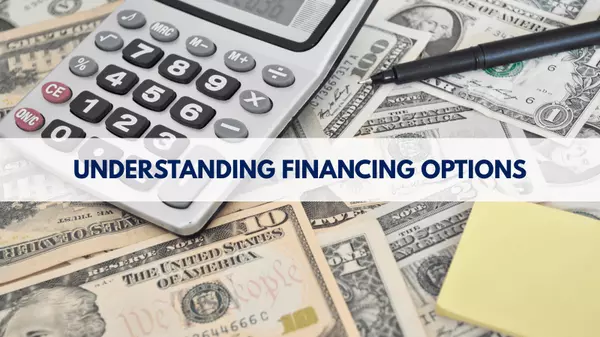Real Estate Contingencies Explained: Protecting Yourself in the Fine Print
Real Estate Contingencies Explained: Protecting Yourself in the Fine Print
When you make or receive an offer on a home, the excitement can sometimes overshadow the legal details. But nestled in that stack of paperwork are "contingencies" — important contractual clauses that can protect both buyers and sellers from surprises, delays, and deal-breakers. 
So what exactly are contingencies, and why should you care? Let’s break it down.
What Is a Real Estate Contingency?
A contingency is a clause in a real estate contract that makes the agreement conditional on certain events or actions. If those conditions aren't met, the party protected by the contingency (usually the buyer) can cancel the contract without penalty.
Contingencies act as safety nets. They ensure that you don't end up buying a house with major undisclosed problems or selling before you're ready.
Common Real Estate Contingencies
1. Home Inspection Contingency
This gives the buyer the right to have the property inspected and either negotiate repairs or walk away if significant issues are discovered. It's one of the most common and critical protections for buyers.
Why it matters: It protects you from costly surprises like foundation issues, roof damage, or faulty wiring.
2. Financing (Mortgage) Contingency
This clause ensures the buyer isn’t locked into a purchase if they can't secure a mortgage by a specified date. If financing falls through, they can walk away with their earnest money.
Why it matters: Lenders can deny loans for many reasons, even late in the process. This contingency keeps buyers from being stuck.
3. Appraisal Contingency
Required with most financed offers, this ensures the home appraises for at least the sale price. If it doesn't, buyers can renegotiate or exit the deal.
Why it matters: No one wants to overpay, and lenders won’t approve a loan for more than a home is worth.
4. Home Sale Contingency
This clause allows a buyer to make their purchase dependent on selling their current home first. It provides financial protection but may weaken the offer in a competitive market.
Why it matters: If your current home doesn’t sell in time, you’re not stuck juggling two mortgages.
5. Title Contingency
This gives buyers a way out if title issues arise, such as liens, disputes, or unknown heirs with claims to the property.
Why it matters: Clean title is required for closing. Any cloud on the title can delay or derail the transaction.
Tips for Buyers
-
Always include an inspection and financing contingency, even if you plan to waive others.
-
Be mindful of timelines. Missing deadlines can nullify protections.
-
Work with an agent who understands how to structure contingencies that protect your interests.
Tips for Sellers
-
Understand that contingencies are not red flags — they’re standard, especially in balanced markets.
-
Consider adding your own contingencies, such as making your sale contingent on securing your next home.
-
Review deadlines carefully and communicate proactively to keep the deal on track.
Final Thoughts
Contingencies might sound like fine print, but they’re essential tools in real estate transactions. They protect your investment, give you options, and help manage risk. Whether you're buying or selling, understanding and negotiating contingencies is one of the smartest moves you can make.
Not sure which contingencies you need in your offer or listing agreement? TeamPete Realty Services can help you navigate every clause with confidence. Let’s talk about your next move.
Q&A: Real Estate Contingencies
Q: Can contingencies be waived? A: Yes. In a competitive market, buyers may choose to waive certain contingencies to strengthen their offer, but it increases risk.
Q: How long do contingencies last? A: Contingencies are tied to deadlines in the contract. Most inspection and financing contingencies last 7–14 days after contract acceptance.
Q: Can a seller reject an offer with contingencies? A: Absolutely. Sellers can accept, reject, or counter any offer — including those with contingencies.
Q: What happens if a contingency isn’t met? A: If a contingency isn't satisfied, the buyer (or sometimes the seller) may back out of the deal without penalty, depending on the clause.
Q: Are there contingencies unique to Pennsylvania? A: Pennsylvania follows standard practices, but the Agreement of Sale form used in PA includes built-in language for common contingencies. A local agent can help you understand them in context.
Categories
Recent Posts











